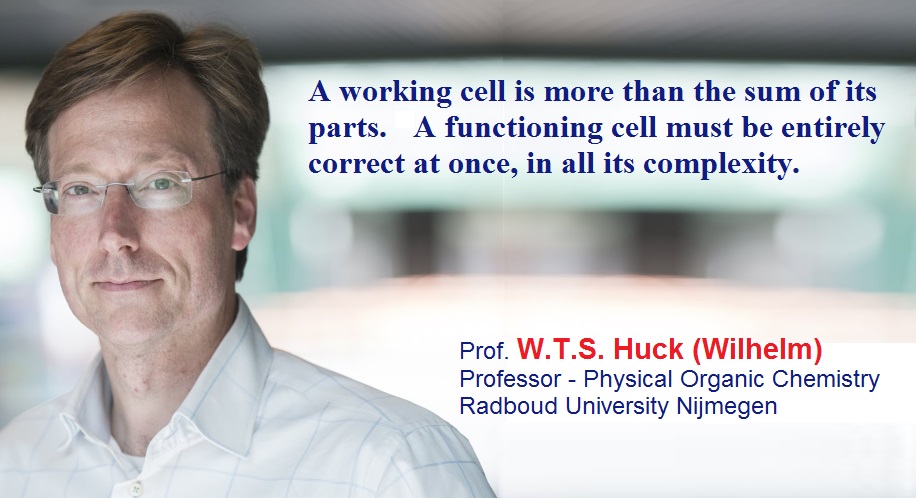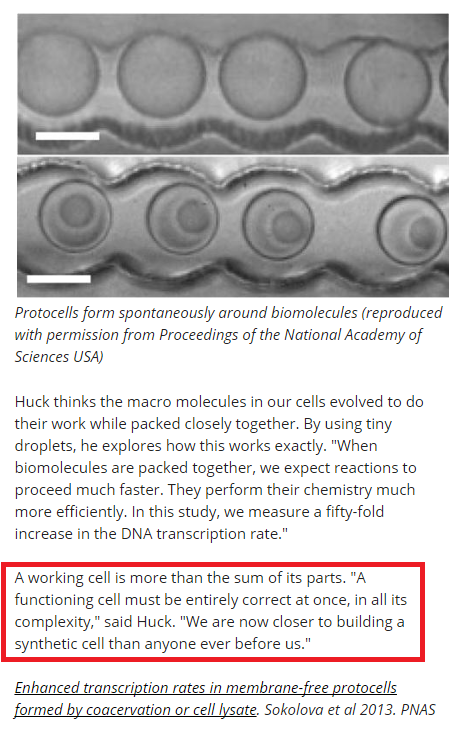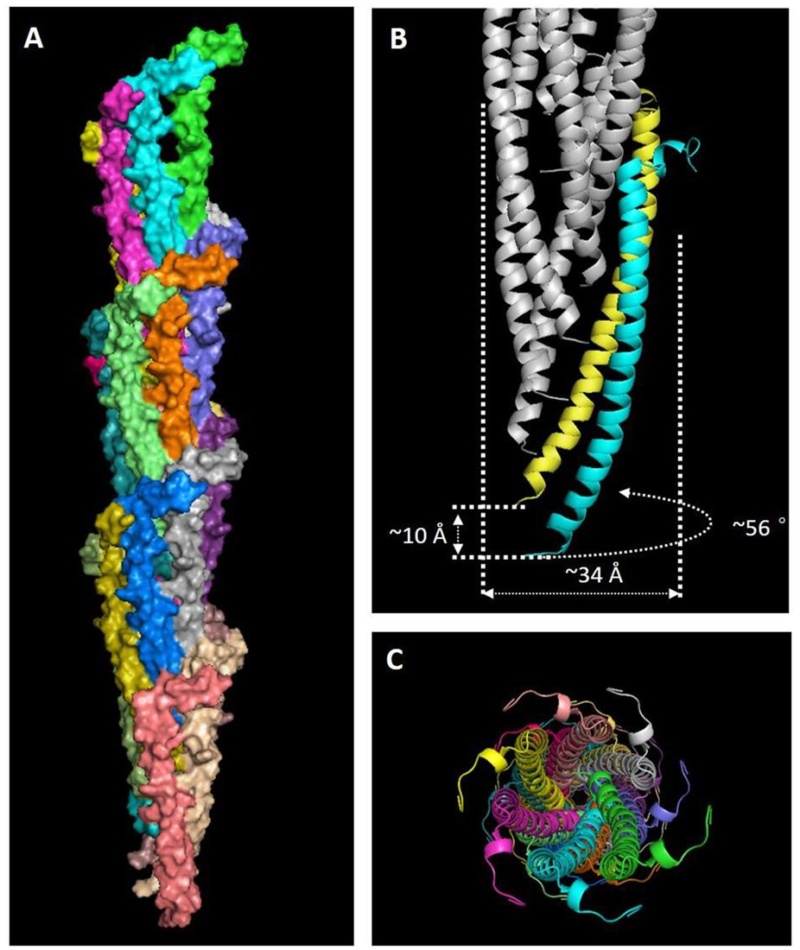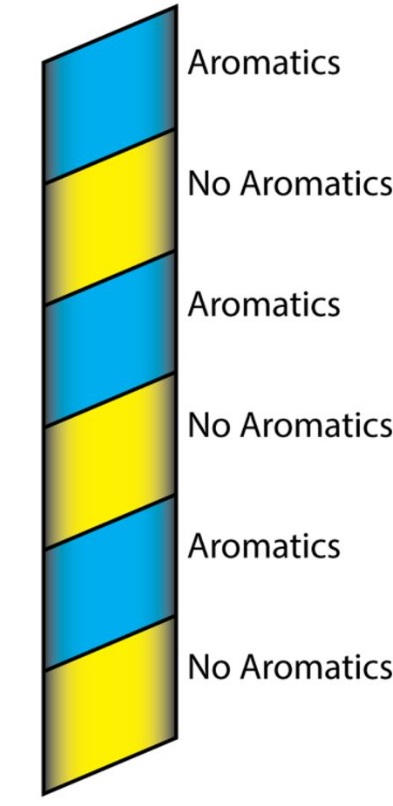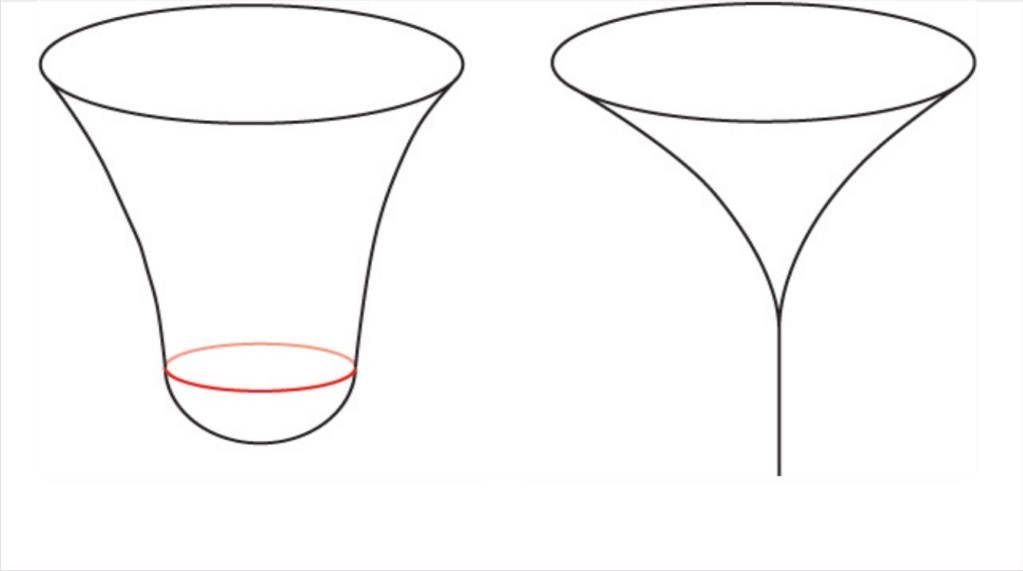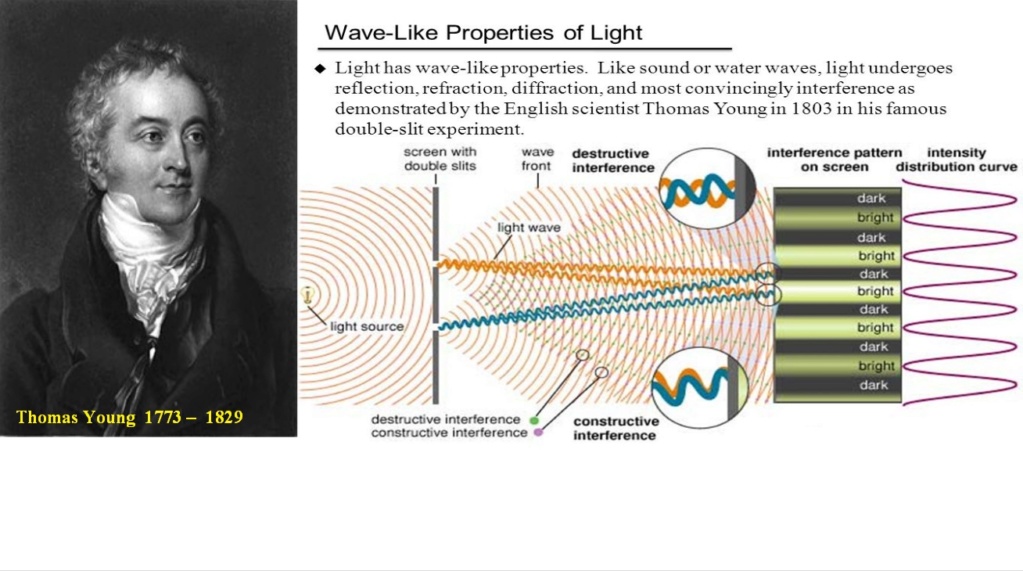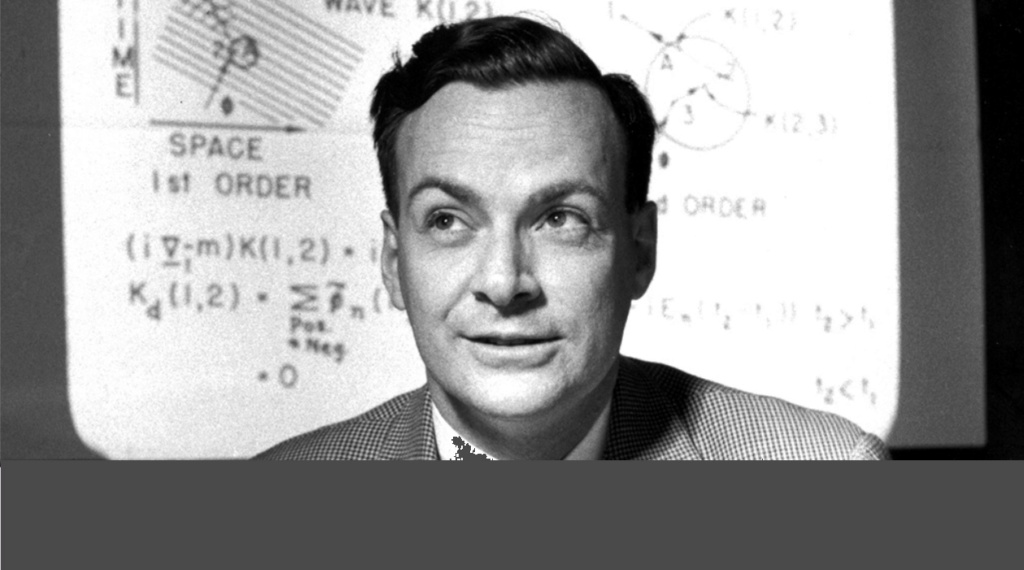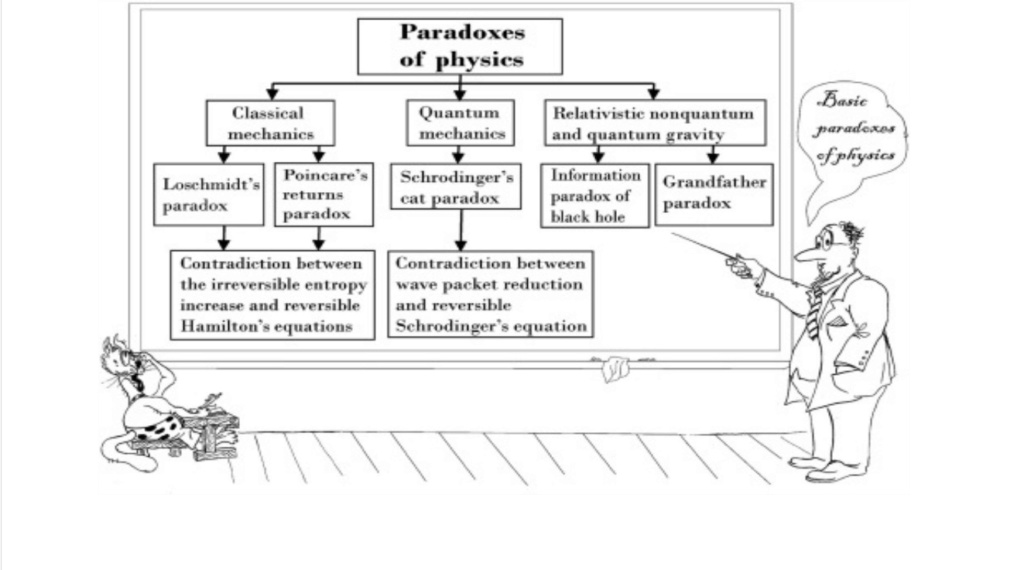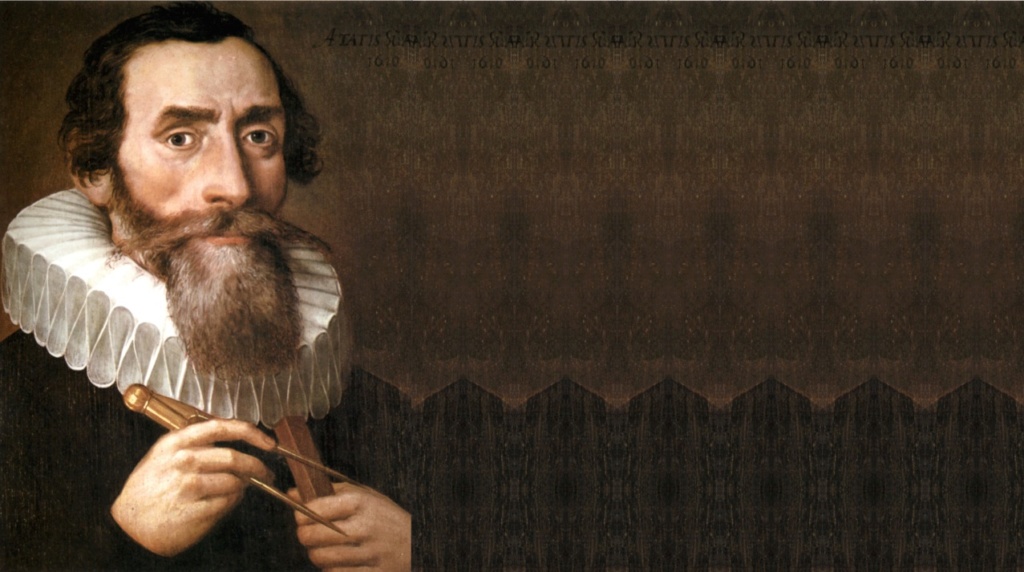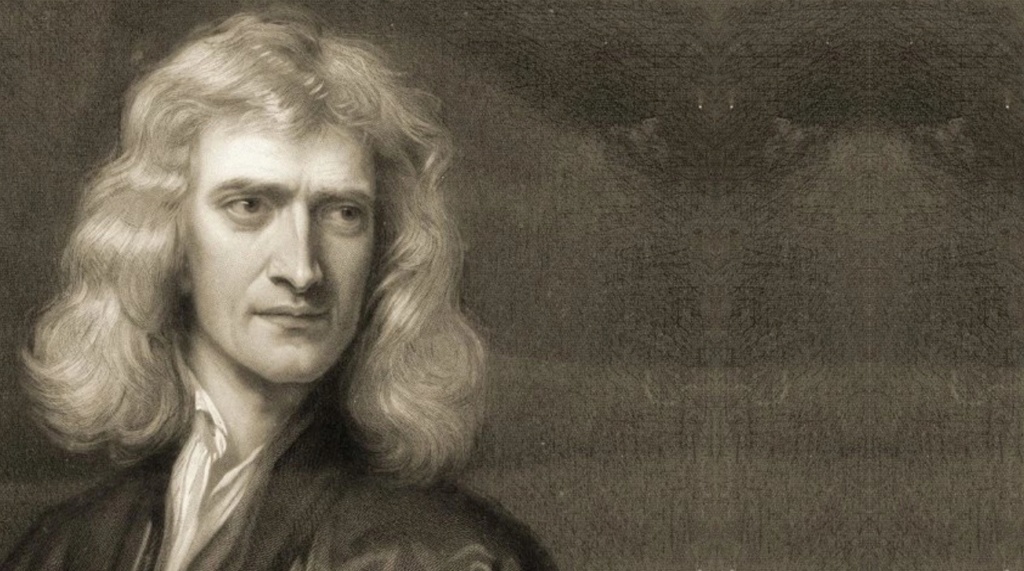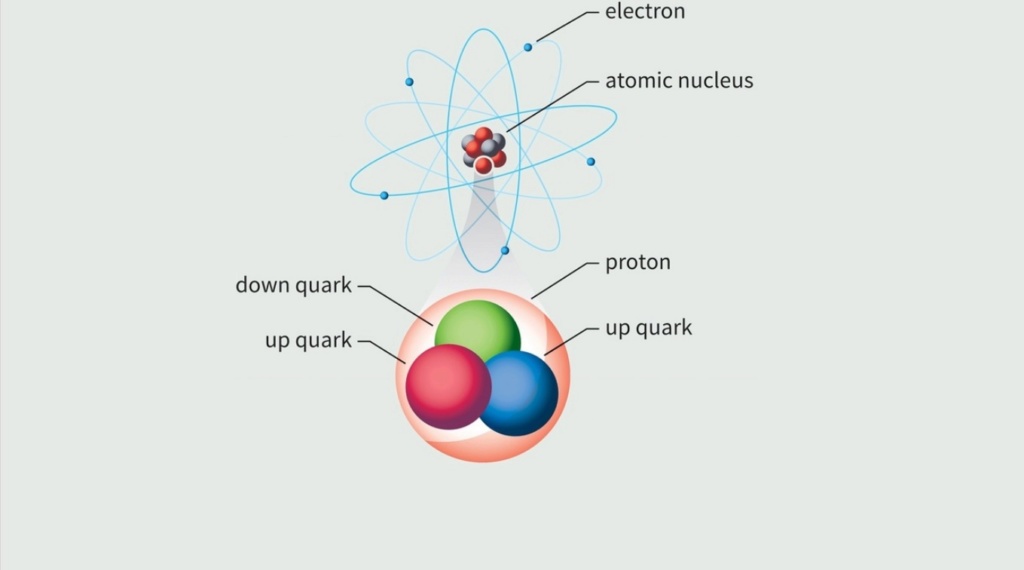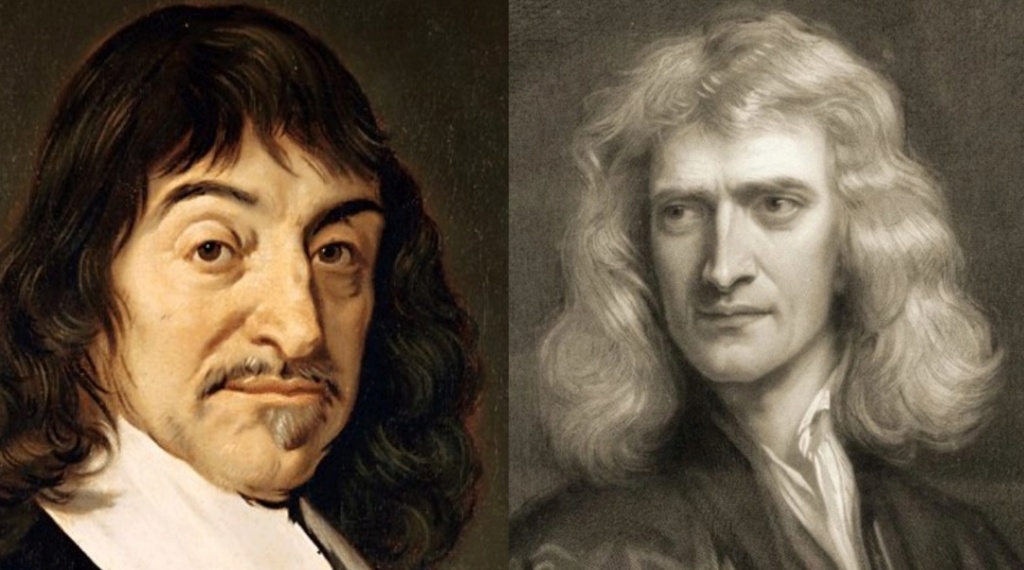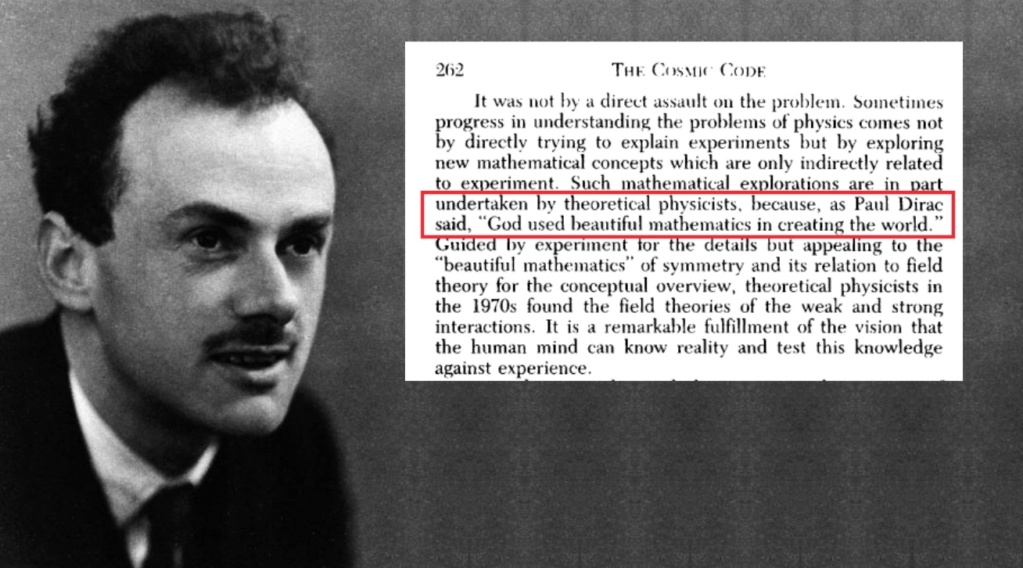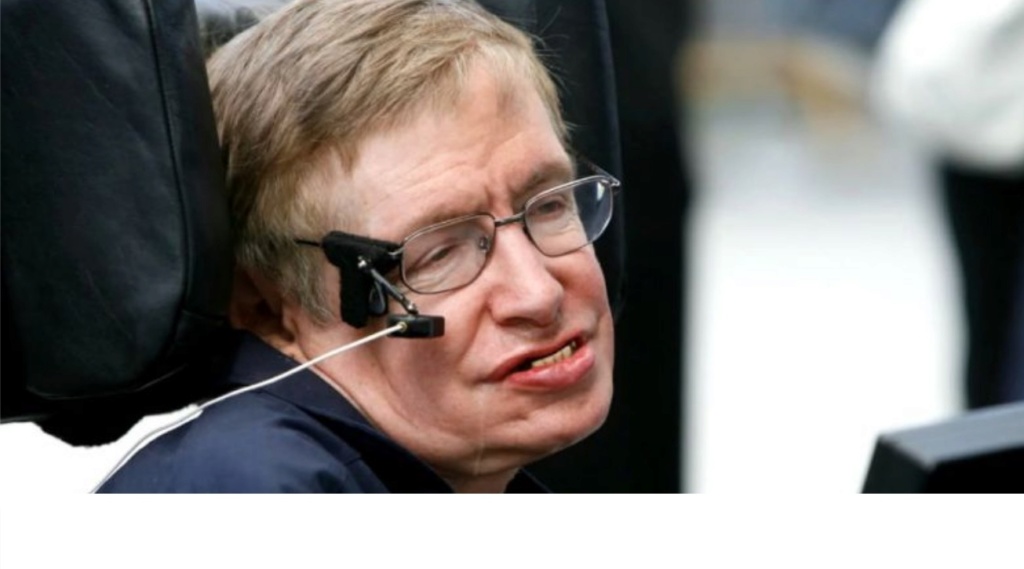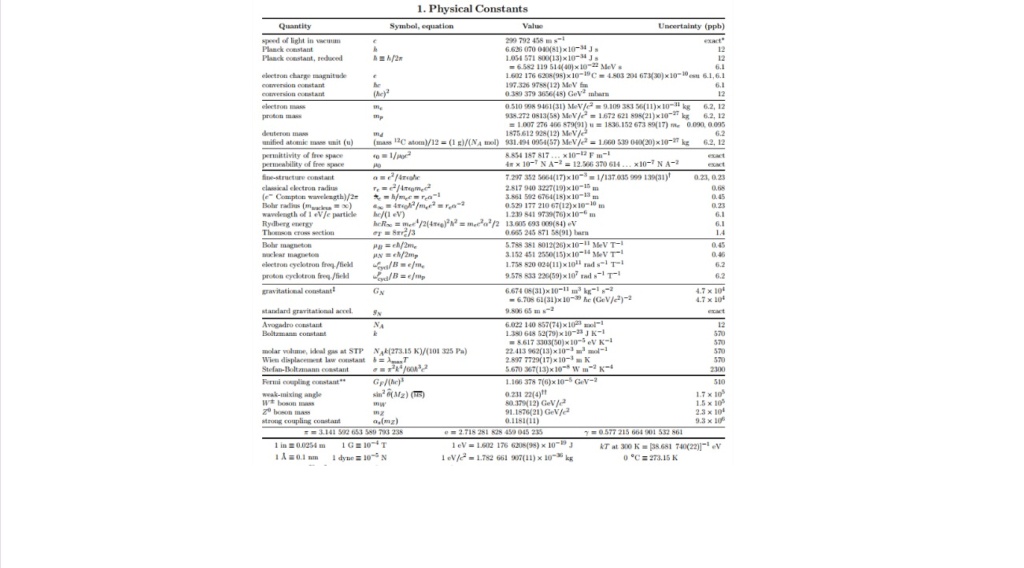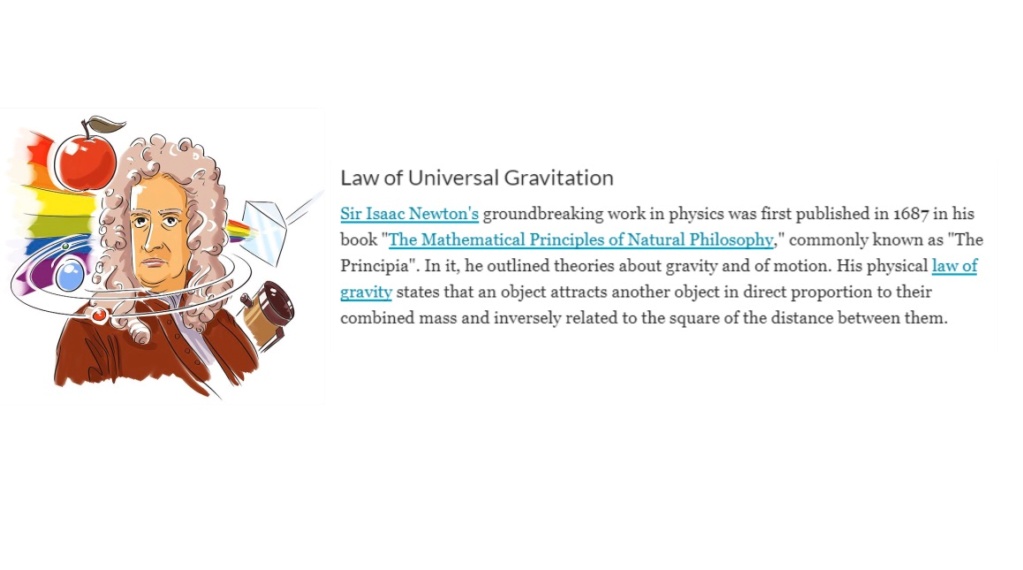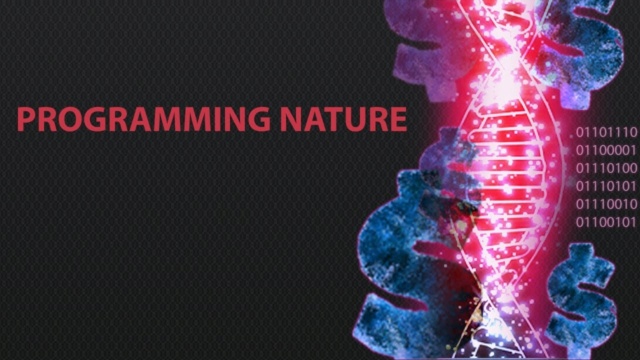heart-stopping level
astounding admission
twist the science to fit his worldview
There are two directions in which things can go wrong—or they can be “just right”. It happens that our universe is extremely perfectly calibrated, just right.
unanimate
super-intelligent ultra-design.
ATGC quartet
adios, evolution.
biologically disastrous
carefully crafted solutions
carefully planned inventions
chemical architecture
crucial reaction
could not come one after the other
could make it work
crucial selective criteria
crucial-for-life reason for this amazing chemical trick.
dauntingly improbable
engineering marvel
engineering cleverness
example of high technology
exquisite balance
exquisite interplay
exquisitely designed biomolecules
exquisitely engineered molecular arrangement
exquisite molecular machines
“Fantastic Four”
finely engineered
hallmark of foresight and sound engineering
How did this perfect, molecular wonder form without anything telling it to?
have to be in place at the same time
highly intricate network
incredible process
indication of the planning involved
If only one exists without the other, no cell at all
incredible bioengineering
ingenious solutions
ingeniously crafted devices
It’s make or break
it’s far and away the best
large multimolecular machines
let’s reason through the claim
life’s long-term storehouse of genetic information
making, finding, and specifically selecting this particular and life-essential
many orders of magnitude
mastery
masterful information-storage molecule
miniaturized technology
molecular architecture
must also be incredible
purely blind chemical forces have accomplished this challenging
putting it mildly
ready to go in the very first organism
wonderful array
wonder of engineering finesse
wonderful chemical trick!
striking solutions
superb atmosphere
superb for the job they have
perfectly suited
perfect link to construct
set of problems that had to be solved and implemented virtually simultaneously,
this stability control for both DNA and RNA had to be anticipated ahead of time and the solution provided with just-in-time delivery
to drive home the point
very elegant and ingenious process
“were born” to make
which came first, the DNA or the correction machinery?
phosphate anion PO4 3- , with its four oxygen atoms distributed in a tetrahedral fashion around the phosphorous atom producing a triple-negative charge.
Another is the five-membered cyclic sugar molecule—ribose—with four available OH linking sites.
four different kinds of stable, rigid, and heterocyclic bases, two purines and two pyrimidines, each with the ability to firmly attach to ribose via covalent bonds and to each other via two or three H-bonding “supramolecular” arms
But before that, he made an interesting remark, outlined on the left in red: The only way to find out is to make every possible effort to explain things naturally. Only if one fails—assuming failure can ever be definitely established—would one be entitled to state that what one is studying is not naturally explainable.
And that is precisely what was done in regards to the attempt to discover a natural mechanism to select right-handed RNA's for life. No mechanism has been found, and De Duve himself basically raised the white flag to confess: Chance !! Chance did it !!
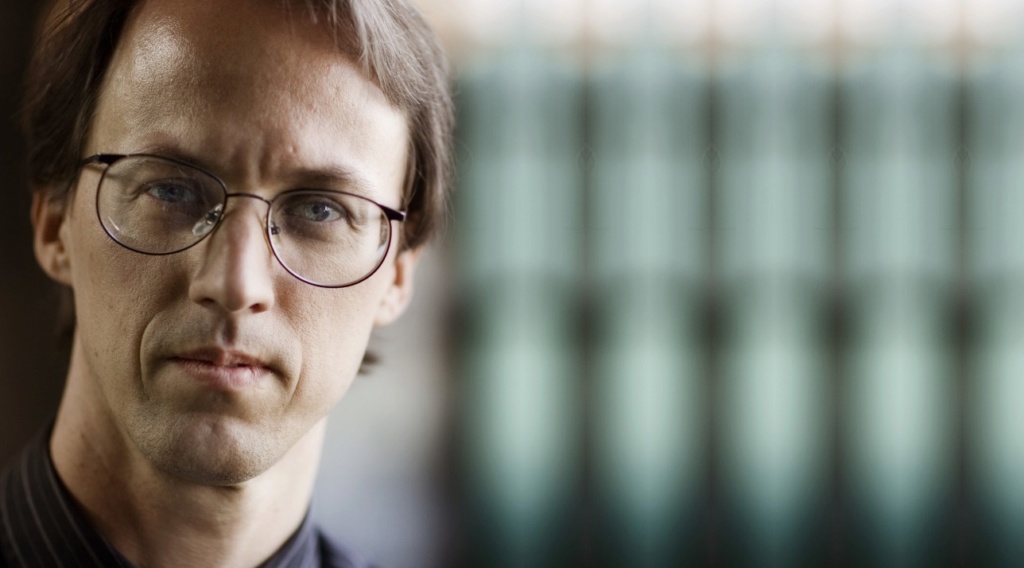
William Dembski, The Design Revolution, page 220
Eliminative inductions argue for the truth of a proposition by arguing that competitors to that proposition are false. ( Contrast this with Popperian falsification, where propositions are corroborated to the degree that they successfully withstand attempts to falsify them ) Provided the proposition, together with its competitors, form a mutually exclusive and exhaustive class, eliminating all the competitors entails that the proposition is true.
As Sherlock Holmes famous dictum says: when you have eliminated the impossible, whatever remains, however improbable, must be the truth. This is the ideal case, in which eliminative inductions, in fact, become deductions. If normally, in practice, we don't have a neat ordering of competitors that can then all be knocked down with a few straightforward and judicious blows, in case of the origin of life, there are just two possible options:

Either life was created by an intelligent creator, or life started by random unguided chemical reactions. Some try to sugar-coat the mechanism of abiogenesis as " chemical evolution", and a considerable number of science papers do smuggle the evolutionary jargon into abiogenesis, but there has to be made a clear distinction. Evolution is only a possible candidate to explain origins once DNA replication was set up.

Some have also tried to brandmark this dichotomy as a black and white fallacy, or "false dilemma" fallacy. When only two choices are presented yet more exist, or a spectrum of possible choices exists between two extremes. False dilemmas are usually characterized by “either this or that” language, but can also be characterized by omissions of choices. So is either intelligent design or chance, a false dilemma?
Many times, proponents of natural causes try to argue in that manner.

"The more statistically improbable a thing is, the less can we believe that it just happened by blind chance. Superficially the obvious alternative to chance is an intelligent Designer. But Charles Darwin showed how it is possible for blind physical forces to mimic the effects of conscious design, and, by operating as a cumulative filter of chance variations, to lead eventual to organized and adaptive complexity, to mosquitoes and mammoths, to humans and therefore, indirectly, to books and computers.
"Darwin's theory is now supported by all the available relevant evidence, and its truth is not doubted by any serious modern biologist...
What Dawkins however conveniently overlooks is the fact that the origin of life cannot be explained through evolution.
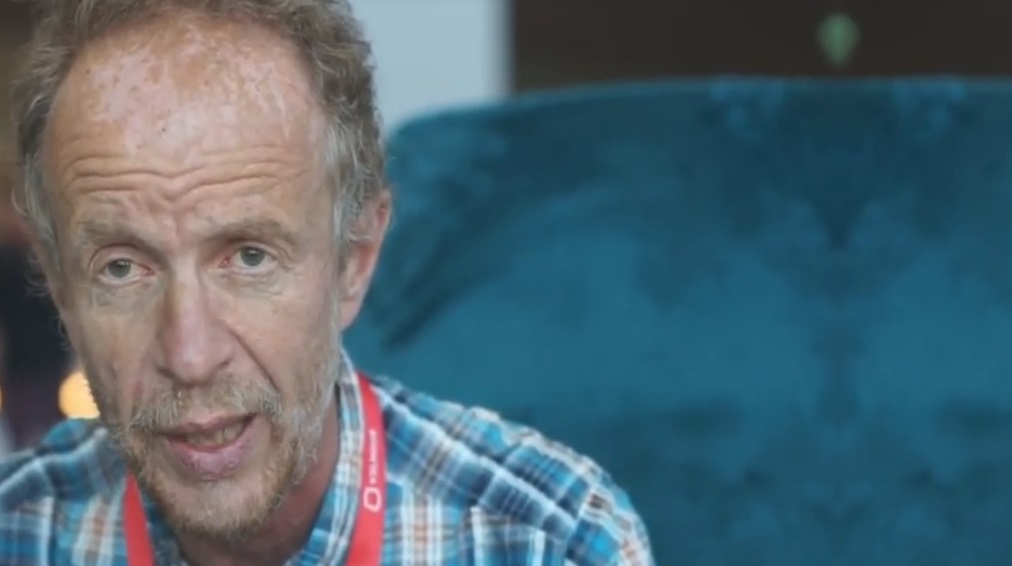
Koonin, the logic of chance, page 266
Evolution by natural selection and drift can begin only after replication with sufficient fidelity is established. Even at that stage, the evolution of translation remains highly problematic. The emergence of the first replicator system, which represented the “Darwinian breakthrough,” was inevitably preceded by a succession of complex, difficult steps for which biological evolutionary mechanisms were not accessible . The synthesis of nucleotides and (at least) moderate-sized polynucleotides could not have evolved biologically and must have emerged abiogenically—that is, effectively by chance abetted by chemical selection, such as the preferential survival of stable RNA species. Translation is thought to have evolved later via an ad hoc selective process.
Did you read this ???!! An ad-hoc process ?? That's true. That's all which is left when the design is dismissed.

Koonin states clearly as the proposed mechanism to explain the origin of RNA monomers, chance, and in order to remain in the realm of materialism, multiverses as a possible explanation. So we remain at the dichotomy of two possible explanations in regards to the Origin of Life: Chance and Intelligent design,
and as well, in a broader sense, in regards to possible worldviews:

Any worldview is limited in that it does not grant absolute truth, but only yields degrees of probability or likelihood. Bayesian inference is a method of statistical inference in which Bayes' theorem is used to update the probability of a hypothesis as more evidence or information becomes available. Bayesian inference has found application in a wide range of activities, including science, theology, and philosophy. After careful examination, all we can do is come to instant-deduction to the best explanation.
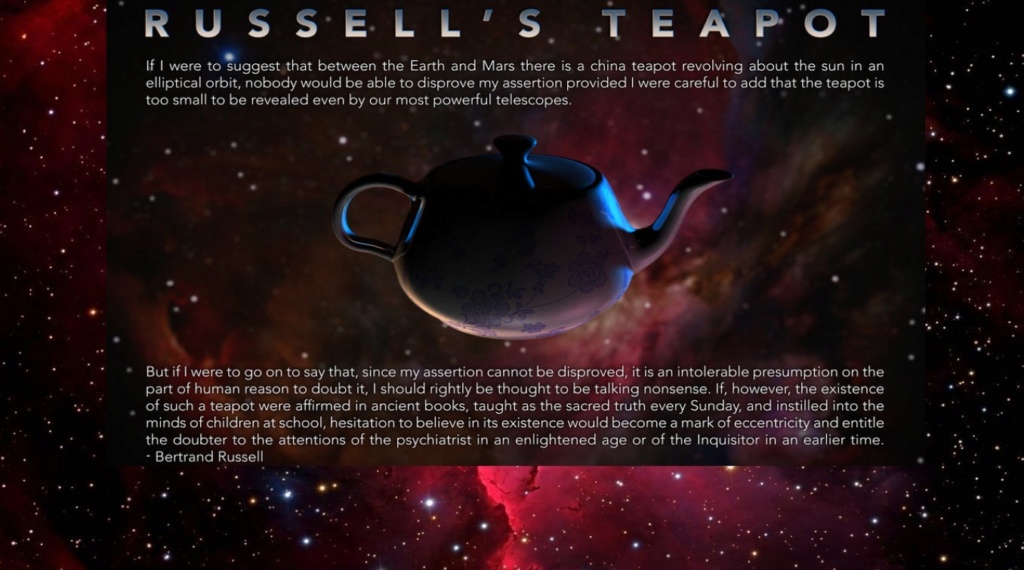
A common attempt of refutation by unbelievers is that there might be other possible options of worldviews, not just two - we have just not figured out yet. We can apply Russell's Teapot. If the unbeliever wishes to claim that there are other options, its upon him to demonstrate it. Assertions without evidence can be dismissed without evidence.

Darwin wrote: To be brief I assume that species arise like our domestic varieties with much extinction; And it seems to me, that supposing that such hypothesis were to explain general propositions, we ought, in accordance with a common way of following all sciences, to admit it, till some better hypothesis be found out. July 20, 1857 The Correspondence of Charles Darwin
It asserts the superior explanatory power of a proposed cause based upon its proven—its known—causal adequacy and based upon a lack of demonstrated efficacy among the competing proposed causes. The problem is that nature has too many options and without design couldn’t sort them all out.
Natural mechanisms are too unspecific to determine any particular outcome. Luck/chance/probability could theoretically sort out right-handed RNA's with the right size and form, and arrange to find out the right place where to bond the base and phosphate, but it could also bind it at any of the five ribose carbons, and grow and attach them anywhere, most of which have no biological advantage or are most probably deleterious.
Natural mechanisms have no constraints, they could produce any kind of novelty. Its however that kind of freedom that makes it extremely unlikely that mere natural developments provide new specific arrangements that are advantageous to form an information storing polymer. Nature would have to arrange almost an infinite number of trials and errors until getting a new positive arrangement.
Since that would become a highly unlikely event, design is a better explanation. This situation becomes even more accentuated when natural selection is not a possible constrained since evolution depends on replication, which did not exist prior to DNA replication

So is the design inference not a God of the gaps inference, after all ? See that the argument from ignorance objection is not a magic wand for silencing intelligent design, let's begin with a reality check. When is the argument from ignorance objection raised against intelligent design, who exactly is being accused of being ignorant? It's natural to think that the ignorance here is on the part of design theorists, who want to attribute intelligent agency to biological systems.
If only those poor design theorists understood biology better, those systems would readily submit to mechanistic explanation. Matter of fact IMHO is, that despite decades of research, the scientific community has been desperately and unsuccessfully tried to discover how such systems could have formed, what mechanism exactly was in charge. Who is ignorant here?
The Scientific community as a whole. In fact, it's safe to say that the biological community is clueless about the emergence of biological complexity.
We also know from broad and repeated experience that intelligent agents can and do produce information-rich systems: we have positive experience-based knowledge of a cause that is sufficient to generate new instructing complex information, namely, intelligence. the design inference does not constitute an argument from ignorance.
Instead, it constitutes an "inference to the best explanation" based upon our best available knowledge. Now, of course, are immediately the ones at the corner raising concern and objection, claiming that " inference to the best explanation" rather than falsifiable science is another cop-our of Intelligent Design promoters. Well, this epistemological approach is a littlebit older than some might expect.
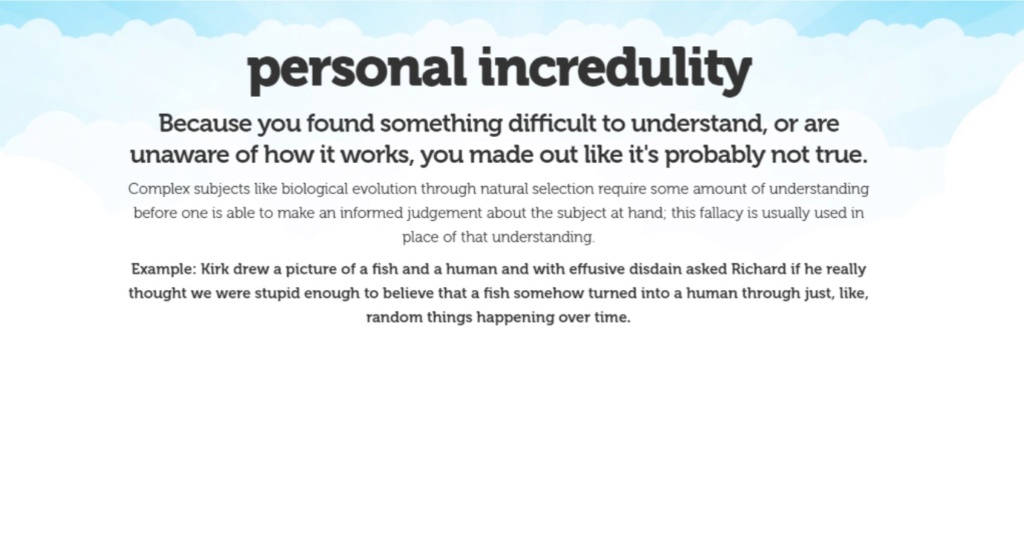
The fallacy of Personal Incredulity goes as follows: Because something is so incredible or difficult to imagine, it is wrong. "Incredulous" basically means "I don't believe it". It is at least disingenious, when atheists accuse theists to be incredule towards the No-God hypothesis, when they commit the same, by being incredulous towards the God hypothesis, because they can't imagine how an invisible God could exist.
Well, why should someone believe a "just so" story about HOW reality, the physical world, and in our special case, RNA, DNA, and nucleotides came to exist, if all the scientific evidence points to the fact that it cannot occur ? That is the THING that we are incredulous about - a *certain scenario* ( naturalism, cosmological, chemical, and biological evolution, abiogenesis and Neo-Darwinism)
and that irreducibly complex biological systems, coded, instructional or specified complex information, and entire factory complexes composed of myriads of interconnected factories, full of computers and robotic production lines could emerge naturally ) that's only *imagined* about how various amazing abilities of animals and plants happened all by themselves, defying known and reasonable principles of the limited range of chance, physical necessity, mutations and Natural selection.
The proponent of naturalism is "incredulous" that an intelligent creator/designer could exist, beyond and behind our entire space-time continuum, who is our Creator. But there is nothing ridiculous about that - especially if you can't personally examine reality to that depth - how do you know nature is all that exists?
What IS ridiculous (IMO) is trying to imagine a *naturalistic origin* of these things. What we need, is giving a *plausible* account of how it came about to be in the first place, and the " No-God hypothesis" simply doesn't cut the cake.
Is it reasonable to assume, that unguided random events, self-assembly, spontaneously by orderly aggregation and sequentially correct manner without external direction would produce a polypeptide chain of RNA on early earth, which somehow would have started to self replicate and produce a useful product for distant life, in face of all difficulties to produce even one functional RNA molecule?
If you can't make a brick, you can't make a house. Naturalistic beliefism is an anecdotal pseudo-scientific House of Cards.
If you can't make right-handed nucleotides, you cannot make life essential information storage and transmission mechanisms, consequently no proteins, nor biological cells.
Last edited by Otangelo on Mon Dec 13, 2021 1:39 pm; edited 10 times in total




